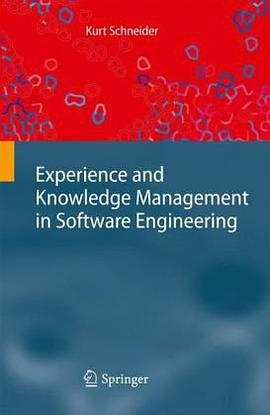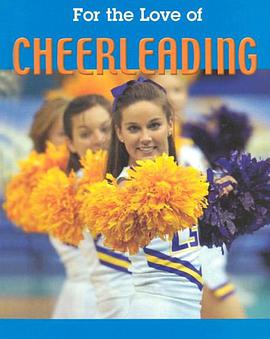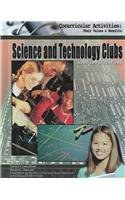

具体描述
Nowadays, there is software everywhere in our life. It controls cars, airplanes, factories, medical implants. Without software, banking, logistics and transportation, media, and even scientific research would not function in the accustomed way. Building and maintaining software is a knowledge-intensive endeavour and requires that specific experiences are handled successfully. However, neither knowledge nor experience can be collected, stored, and shipped like physical goods, instead these delicate resources require dedicated techniques. Knowledge and experience are often called company assets, yet this is only part of the truth: it is only software engineers and other creative employees who will effectively exploit an organisation's knowledge and experience. Kurt Schneidera (TM)s textbook is written for those who want to make better use of their own knowledge and experience a " either personally or within their group or company. Everyone related to software development will benefit from his detailed explanations and case studies: project managers, software engineers, quality assurance responsibles, and knowledge managers. His presentation is based on years of both practical experience, with companies such as Boeing, Daimler, and Nokia, and research in renowned environments, such as the Fraunhofer Institute. Each chapter is self-contained, it clearly states its learning objectives, gives in-depth presentations, shows the techniquesa (TM) practical relevance in application scenarios, lists detailed references for further reading, and is finally completed by exercises that review the material presented and also challenge further, critical examinations. The overall result is a textbook that is equally suitable as a personal resource for self-directed learning and as the basis for a one-semester course on software engineering and knowledge management.
作者简介
目录信息
读后感
评分
评分
评分
评分
用户评价
读完这本书,我的第一感受是豁然开朗,尤其是在理解软件项目复杂性管理方面。传统的知识管理方法论往往将知识视为静态的文档集合,但这本书清晰地阐明了软件工程中的知识是动态的、情境化的,并且与团队成员的技能紧密耦合。它巧妙地将认知科学和组织学习理论引入到软件工程的语境中,使得我们能更深刻地理解为什么知识在跨部门、跨项目传递时会发生“失真”或“丢失”。作者对于“社区实践”(CoP)的论述尤为精彩,它不再仅仅是一个松散的交流平台,而被提升到组织核心资产管理的高度。书中关于如何设计激励机制,鼓励工程师主动分享他们的“独家秘笈”而非仅仅完成任务,这部分内容对我所在团队的文化重塑提供了直接的蓝图。它不是教你如何用某个工具,而是教你如何构建一个“会思考的组织”,让集体智慧超越任何个体的能力上限。
评分我必须强调这本书在结构布局上的精妙之处。它并非简单地堆砌理论,而是构建了一个清晰的知识流动的逻辑链条。从个体层面的反思日志,到团队层面的站会回顾,再到组织层面的知识库共享,每一步的衔接都无比自然流畅。最令我印象深刻的是对“失败知识”的处理艺术。很多组织倾向于掩盖或淡化失败,这本书却鼓励将失败视为最昂贵、最高效的知识来源。它提供了如何在不指责、不惩罚的环境下,安全地“解剖”失败案例的方法论,从而将“负面资产”转化为面向未来的“预防性知识”。这种积极、建设性的态度,极大地增强了阅读体验的深度和共鸣。对于任何渴望打破“重复犯错怪圈”的软件工程从业者来说,这本书提供了一种系统性的、富有同理心的出路。
评分这本书的内容简直是为我量身定做的,我一直在寻找一本能够系统梳理软件工程领域中“经验”和“知识管理”这两大核心议题的深度著作。市面上很多书籍要么过于偏重技术细节,忽略了组织层面的经验传承,要么就是停留在理论层面,缺乏在实际软件开发生命周期中如何落地执行的指导。而这本书,显然走了一条更扎实的路径。它不仅深入探讨了隐性知识的显性化过程,还提供了一套可操作的框架,教我们如何有效地捕获、存储、检索和重用那些在项目失败或成功中积累下来的宝贵教训。特别是关于“经验教训数据库”的构建和维护部分,作者提出了非常具有前瞻性的见解,结合敏捷和DevOps的理念,让知识管理不再是流程的负担,而是推动迭代和创新的加速器。我特别欣赏它在案例分析上所下的功夫,那些源自真实世界软件项目的困境与解决方案,让抽象的理论瞬间变得鲜活可感,读起来完全没有枯燥感,反倒像是与行业内资深专家进行了一场深刻的对话。
评分坦白说,起初我担心这本书会陷入对某些特定技术栈的过度关注,但事实证明我的担忧是多余的。它极具普适性,无论是采用瀑布、敏捷还是混合模式的团队,都能从中汲取营养。这本书的价值在于其元层面的思考,它关注的是软件组织作为一个有机体如何学习和进化。书中关于“经验的脆弱性”的讨论尤其发人深省,它揭示了人才流失对知识资本的毁灭性打击,并提出了针对性的风险缓解策略,比如知识的冗余备份和关键技能的交叉培训机制。这种对组织韧性的关注,使得这本书超越了一般的项目管理书籍,上升到了企业战略的层面。它不仅仅是给项目经理看的,更是给CTO和高层管理者提供了一套确保长期竞争力的思维工具箱。阅读过程中,我多次停下来,在我的笔记本上记录下可以立即在下个月的团队会议上引入的讨论点。
评分这本书的叙事风格非常独特,它不像一本教科书那样板着面孔说教,反而更像是一份经过精心策划的行业白皮书,内容厚重却易于消化。我注意到作者在论证观点时,非常注重平衡理论的严谨性和实践的可行性。例如,在讨论如何将模糊的“设计意图”转化为可追溯的知识资产时,书中提供了一系列成熟的建模技术,并结合了最新的架构文档实践。我过去总是苦恼于新接手的项目文档缺失关键的设计决策背后的“为什么”,而这本书给出了系统性的解决方案,它强调将决策过程本身视为知识的一部分进行管理。对于那些正在进行大规模系统重构或维护遗留系统的团队而言,这本书提供的方法论是无价之宝,它帮助我们从“修补匠心态”转变为“知识架构师心态”,确保每一次改动都是基于对已有智慧的深刻理解之上。
评分 评分 评分 评分 评分相关图书
本站所有内容均为互联网搜索引擎提供的公开搜索信息,本站不存储任何数据与内容,任何内容与数据均与本站无关,如有需要请联系相关搜索引擎包括但不限于百度,google,bing,sogou 等
© 2026 book.wenda123.org All Rights Reserved. 图书目录大全 版权所有




















